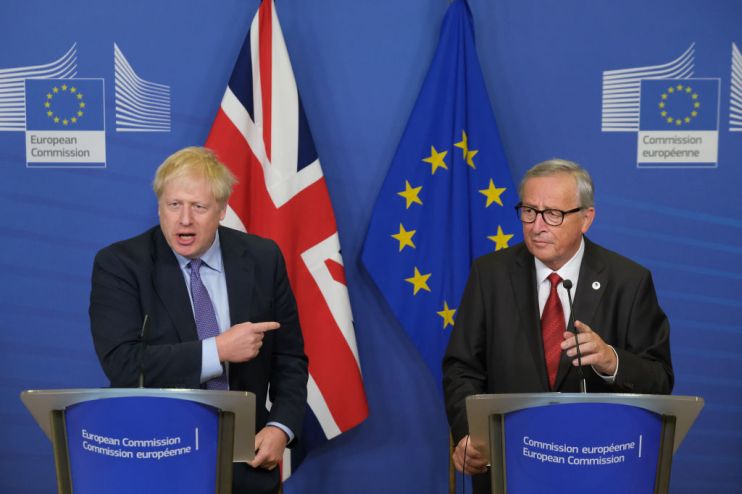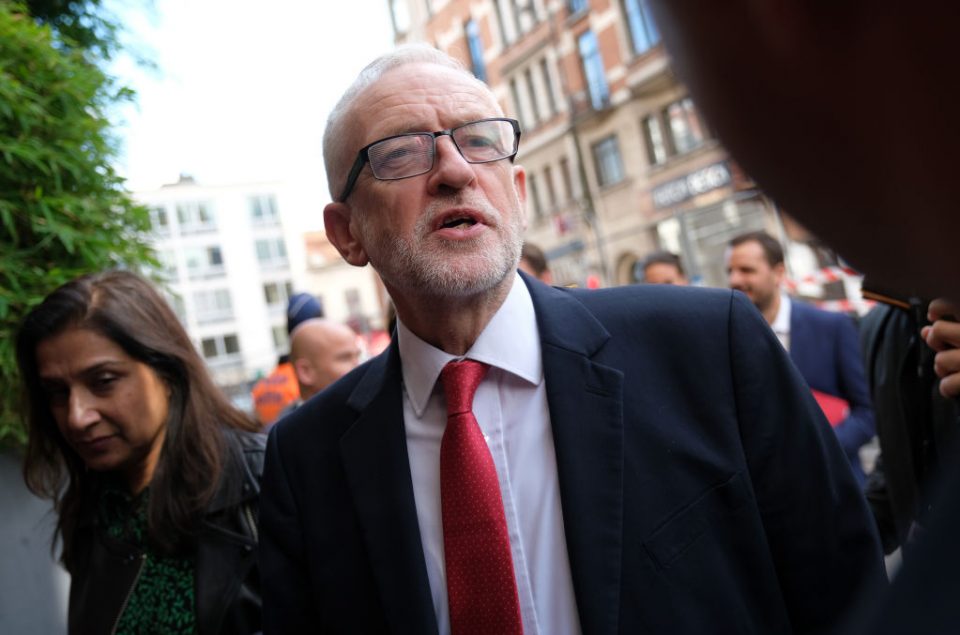Four ways the Brexit deal could change Britain’s economy

MPs are once again poised to vote on Boris Johnson’s “great new Brexit deal,” following the official release of the Withdrawal Agreement Bill by the government.
Read more: Government threatens to pull Brexit bill if MPs vote against timetable
Should the House of Commons today pass the bill alongside a motion to ram through legislation at short notice, then by the end of 2020 Britain’s economic model will look radically different.
But what are the key economic elements of the bill? And what effect do experts think they will have?
No protection against no-deal Brexit
The bill says Britain’s existing economic relationship with the European Union will stay in place until the end of December 2020.
It gives the government until then to negotiate a free-trade agreement with the EU. If one is not reached, Britain will crash out of the bloc on to World Trade Organization terms, with higher tariffs on EU trade.
This issue has vexed MPs from across the House today, causing a major obstacle for the Brexit deal. Former Conservative chancellor Philip Hammond told the Times the bill was “a camouflage to a no-deal Brexit at the end of 2020”.
EU chief negotiator Michel Barnier today told the European parliament a trade agreement could take “three years or more”.
Paul Dales, chief UK economist at consultancy Capital Economics, called the chances of a deal being struck in this time “very slim”. He said: “To do one in 18 months or so would be a Herculean effort.”
Yet many Brexiters are thought to be keen on this aspect of the bill as it denies MPs the chance to extend Britain’s stay in the EU once again.
‘Level playing field’
To the fury of many on the Labour benches, references to a “level playing field” – alignment with the EU on things like labour and environmental standards – have been removed from the withdrawal agreement.

They instead appear in the non-binding political declaration, which says any “future relationship must ensure open and fair competition, encompassing robust commitments to ensure a level playing field”.
Read more: Donald Tusk opens door to Brexit extension ahead of key vote
Charlotte Kude, head of government affairs at the free-market Adam Smith Institute, said the change was “good news”. She said: “This means the UK will have more power to set our own regulations and be able to negotiate comprehensive free trade deals after we leave.”
Workers’ rights
One of the Labour party’s chief objections to the bill is that without level playing field provisions, there is no legal protection for workers’ rights.
All the withdrawal agreement says is that a minister would have to notify the House if the government was seeking to change labour standards.
Andrew Pendleton, director of policy at left-leaning think tank the New Economics Foundation, warned that “once outside Europe, whatever is written in the bill can be changed in future by a UK government that wants to weaken employment protections”.
This “should be enough to spook any MP that cares about these issues into demanding that workers’ rights are upheld and protected as we leave,” he said.
Yet Kude said: “The UK already has more stringent labour regulation than European Union directives mandate. This will continue after Brexit.”
Irish Sea border
The bill outlines the new plan for Northern Ireland, which will remain aligned to the EU customs union even if the rest of Britain dramatically diverges.
It is one of the major differences between Johnson’s bill and Theresa May’s. It places a border between mainland Britain and Northern Ireland – down the Irish sea – and scraps the so-called backstop.
Ann McGregor, chief executive of the Northern Ireland Chamber of Commerce, said the arrangement will bring with it new difficulties, chiefly paperwork.
“I will be very different from what we have now – adding a further administrative burden to businesses and slowing down the on-time delivery model that many companies operate.”
Read more: Government borrowing jumps by a fifth in run-up to Brexit
However, Dales said that in some ways the arrangement is the “best of both worlds” for Northern Irish businesses, giving them “one foot in the EU, one foot in the UK”.
(Image credit: Getty)